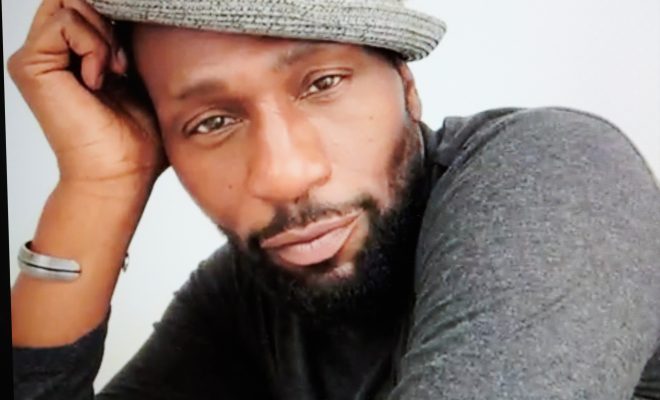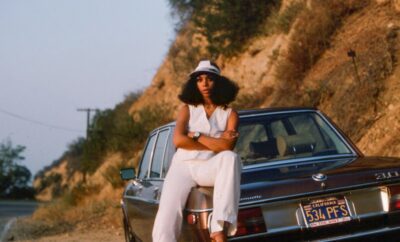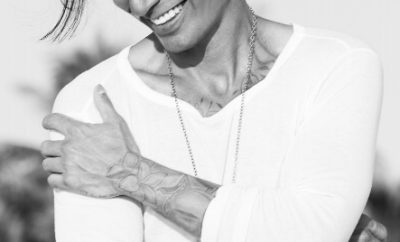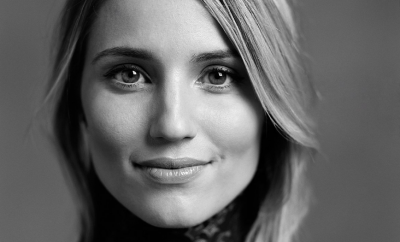 Photo by Matthew Jordan Smith
Photo by Matthew Jordan Smith
Lifestyle
Leon on Madonna, Tupac, Co-Parenting with RHOA’s Cynthia Bailey
Actor Leon cuts a slim and regal frame. Once upon a time, his soulful eyes, defined facial structure and silken voice compelled Madonna to cast him as the saintly figure come-to-life and racial martyr in her culturally provocative Like A Prayer video during MTV’s golden era. It was a career-making turn that made headlines around the world. Leon went on to play memorable roles on screen, from embattled former basketball great in 1994’s Above the Rim opposite the late Tupac Shakur to David Ruffin in 1998’s biopic about Motown legends The Temptations, and his critically acclaimed portrayal of Little Richard in the 2000 biopic about the eccentric late singer’s life.

Other notable film roles include The Five Heartbeats, Cool Runnings, Waiting to Exhale, Ali, Cliffhanger, and Get Rich or Die Tryin’. The common thread throughout these films is Leon’s arresting and charismatic presence. It transforms even the quietest moment into something memorable that transcends years, and even decades. Next up is 2022’s A Day to Die opposite Bruce Willis.
On the small screen Leon has starred in HBO’s Oz and Showtimes City on a Hill, and RHOA fans have caught glimpses of him with his daughter, Noelle Robinson, and her mother, former model, Cynthia Bailey. His recent BET projects include A Luv Tale and Games People Play.
Allison Kugel: You’ve had so many iconic roles and appearances over the years, and you’ve played a part in some amazing pop culture history. The first thing I want to ask you about is waaay back in 1989 when you were Madonna’s male lead in the controversial music video for her song, Like A Prayer. How were you cast in the Like a Prayer video, first of all?
Leon: My agent called me and said they were interested in seeing me for this music video with Madonna and I told them I wasn’t interested.
Allison Kugel: Why?
Leon: Well, why would I be at that time? I was in acting at the time, and I had just started doing studio movies.
Allison Kugel: But you didn’t think at the time that MTV was this amazing platform, and Madonna was the top artist?
Leon: No, I wasn’t thinking that way because I was a serious actor, and you didn’t see serious actors in music videos back then, dancing around. I thought, “If I’m in this music video with Madonna, I’ll be dancing around doing something like that. I didn’t really know, and at the time I’m trying to pick and choose and I’m trying to do something with my career. I didn’t think dancing around in a music video with Madonna was going to elevate it (laugh). That was my thinking. Then, maybe a week or two later they came back again and said to my agent, “Listen, Mary Lambert (the video’s director) would like to meet Leon.” Then my agent said that Mary Lambert was a feature film director. And she said, “You know, maybe something can come out of this meeting even if you don’t do the music video.” I went to meet her and there was nothing but women around everywhere. We hit it off, it was great, and then they wanted me to meet Madonna, and Madonna and I hit it off. Madonna walked in and said, “I don’t even know what to say, because everyone in the world is telling me that you’re the guy (laugh).”
Allison Kugel: So, you’re on the set of the Like a Prayer video with Madonna, and you had to know this was going to be a controversial video, or that it would at least spark a major conversation about race and about religion. What were you thinking when you were making the video?
Leon: First of, I have to tell you, one of the things that made me want to do the video when I was talking with Mary Lambert, and I said to her, “Well let me hear the song.” I heard the song, and I was thinking, “Wow, this song sounds like it’s going to be number one.” I then said, “Let me get this right. You want me to act?” She said, “Yes. I need you to play two different characters and I need an actor for this.” That’s when it clicked, and I got it. I said, “I’m going to be acting in the video, and Madonna will have me come to life and Madonna will adore me? Yeah, okay I got it. I can see me doing this (laughs).
Allison Kugel: I get it now. Okay. So, they basically twisted your arm (laughs)…
Leon: Things had to come together for me to see the vision, you know? When I’m on the set and I realize the level of production and how good this is going to be, all the metaphors in the video, I knew at that time that this was Madonna’s comeback, and this is a number one song. I know it would be the lead off story of every entertainment section. What I didn’t know is it would be the lead off story of everything; not just the entertainment sections, but the front of the newspapers and the first story on the news.
Allison Kugel: It’s the late 80s and it sounds comical to say this now, but I remember news people discussing your interracial kiss with Madonna. That sounds so crazy now, right? But we’re going back over thirty years ago, and it was a big deal back then.
Leon: Not to say it wasn’t a big deal, but I don’t think that the interracial kiss was that big of a deal.
Allison Kugel: The burning crosses in the video?
Leon: It was who she was kissing, and that he was Black.
Allison Kugel: Tell me the difference…
Leon: For one thing, most people believe that she is kissing Jesus and Jesus is being portrayed as a Black man.
Allison Kugel: Ohhhhh, okay…
Leon: That was where there was and is a much bigger controversy. She’s not just kissing a Black man. She’s kissing a Black Jesus. Even though he was just a Saint that came to life, people thought of him as Jesus, so that’s where the controversy really happened. There were so many metaphors, but probably none bigger than that.
Allison Kugel: When you and Madonna were working together, shooting this video, did she say anything to you about how she thought it was going to be received, or was she just all into the artistry of it and that was it?
Leon: Madonna was a lot of fun to be around, and we joked around a lot and did a few things together. She was cool. I think she was very much trusting of her team and the ultimate plan of what this video was supposed to be, and its visuals. I thought she looked great in the video, like an Italian movie star. I think that she was very locked into making her comeback at the time. The song was going to be that lead off thing that was going to kick it off, and it was everything she could have imagined and more.
Allison Kugel: And everything old is new again, because you have the scenes in the video where you’re being wrongfully accused of attacking someone when you are leaning over, trying to help her, after the perpetrator, who happens to be white, runs away.
Leon: Of course, and the thing is, the video is such a positive video if you are a religious person. What happens is, a woman (played by Madonna) sees a crime. She sees the wrong man accused, she went to church for guidance and the guidance she got from church and that experience from church, got her to do the right thing.

Allison Kugel: Love it. Let’s talk about the movie, Above the Rim. So much of your role in that movie, and I think you talked about this with Vlad TV, but so much of your character Shep comes through your eyes, even more so than your dialogue. What is your technique and how do you get into an intense character like that?
Leon: The character of Shep in Above the Rim was an interesting character because he was haunted. He was haunted by what happened to his friend Nutso on that roof and his whole life felt as though he was repenting, and he had to relive everything over and over again. Even when he played basketball by himself, it was like Nutso was there with him and he couldn’t let that go. He couldn’t shake it, so I think it’s very important to have people see that hurt and repenting in your eyes, even more so than any kind of dialogue.
Allison Kugel: How do you get there?
Leon: I’m very much a method actor, so I would delve into a role and stay in that character until the movie was finished. I think it’s how someone holds their shoulders, the look in their eyes, you can always tell something about them. They’re hurting or something is wrong, and I thought that was very important for that character.
Allison Kugel: You filmed Above the Rim in 1994 and you worked closely with Tupac Shakur in the film. You played brothers at odds. During that time when you were shooting that film in New York, was that at the same time Tupac was arrested for sexual abuse, going through his trial, when he got shot at Quad Studios? Was that all happening to him during filming?
Leon: No, it wasn’t when he was shot at Quad Studios, but he had just shot at two off-duty police officers in Atlanta, and then he had some other court case going on, but I don’t know what that was. It could have been the rape charge, but I’m not sure. But the production got interrupted several times because of it.
Allison Kugel: What was your feeling about it at the time?
Leon: For me, I just never wanted to see a young talented brother hurt himself or not succeed. And that’s what I was seeing in Tupac. I liked him, and with me he was one hundred. I thought he was talented and had charisma, and everyone could see that, but his mind was on other things that were going to bring him down, and it was obvious. It hurt me to see that, because I wish he was here with us today. But everyone has their path. Everyone has to live their life the way they want to live it. That’s what I was seeing, just talent being wasted, is what I thought.
Allison Kugel: Did you get along? What did you think of him as a man? As an artist?
Leon: Like I said, he was one hundred with me, but he told me that from the beginning. He told me at the script reading. He said, “Listen, you’re not going to have a problem with me, because you’re in The Five Heartbeats.” That movie was so revered by everybody. You usually get your props right off the jump (laughs).
Allison Kugel: When you play a real person, as you have when played both David Ruffin and Little Richard, do you feel stuck between not wanting to do an impression, but wanting to capture their essence?
Leon: It’s tough. It depends on who you’re playing and what you’re playing. If you are playing a musical performer, you just have to ride that line of when you’re actually being that person, and when that person is going through something, and make it as real as possible. Once people buy into the fact that you are who you are, you can take them anywhere. You can take them into space. They’ll follow you anywhere once they believe you are that person.
Allison Kugel: What’s been your favorite role, and why?
Leon: My favorite role is your favorite role, because I don’t watch my movies.
Allison Kugel: You’ve never watched them? Are you afraid to see yourself on camera?
Leon: Of course, I’m going to see my work, but I don’t re-watch them. I’m not at home re-watching my own movies right now. I don’t do that. When they come out and there’s a screening, I’ll see it. Usually, I’m watching to see what the audience is thinking, because that is who I’m making the movie for. I’m not making it for me. I think that if I watched my work over and over again, I don’t know, maybe it would be good for me to do that, but I’m too critical. I start picking myself apart, wondering, “Why do I hold my face like that? What’s wrong with my lips?” I’m not into doing that.
Allison Kugel: If you could travel through time and go back in time to alter a famous historical event, where would you go and what you attempt to change?
Leon: When you say “event,” it’s tied to so many other things. It’s like, how do you say you don’t want this one thing to happen because it’s tied to so many other things that happened, and you think of all the things it caused that are positive or negative, because that one thing happened. And then you say, “I don’t know if I want that not to happen (laugh). You know what I’m saying?
Allison Kugel: Yes, you’re saying it’s like pulling one thread and the whole thing comes apart. That’s a good point.
Leon: Yes. It’s probably a lot easier with a sporting event, like, “Ah, I wish he had made that shot (laugh). Because then that’s it.
Allison Kugel: Right (laugh), it’s not going to affect anything serious.
Leon: That’s a hard question, and I don’t know if I can give you a proper answer for that. But I applaud you for asking me a question where I can’t do that, because I’m usually asked…
Allison Kugel: The same old shit (laugh)…
Leon: Same old shit or nothing I wouldn’t have an answer for, put it that way.
Allison Kugel: What is the greatest lesson of your life, so far?
Leon Robinson: One lesson that made me a better artist is an attorney telling me, years ago, that it’s not important about how much money you make. It’s the work you do that’s important, because when you are on the screen or on the stage, it doesn’t say “$1 million, $4 million, or $5 thousand dollars. All of your memories are your performances and your story lines, so what you want to concentrate on is doing memorable work. If you do memorable work, then it doesn’t matter how much money you made.
Allison Kugel: Agreed.
Leon: That’s always stuck with me, and it’s never been more prevalent than in this interview with you, because what are we taking about right now? We’re talking about work that was done decades ago that people are still fascinated with. I appreciate him telling me that, and it has always stuck with me.
Allison Kugel: Do you pray? If so, who or what do you pray to?
Leon: I pray, but most of my prayers are for other people or with other people, to be honest with you. I pray to a Being that is higher than me.
Allison Kugel: Do you identify that Being by name, or you don’t want to go there because it’s not something you can define?
Leon: I can tell you that my whole life I’ve been a Christian and a Catholic, but as I’ve grown older, I’ve learned more about the world and learned more about my spirituality and about other religions. For me, it’s more about spiritually and being connected to a higher being, and it doesn’t matter if you call that being God, Jah, or Mohamad or Jesus. It doesn’t matter. What does matter is how that Being, or spirit is affecting you in your life, and your life’s journey. You can call it whatever you want, but is it flowing through you? Is it affecting you as a person? Is it making you a better person? That is what really matters.
Allison Kugel: I’ve never watched The Real Housewife’s of Atlanta, though I did watch a few clips the other day, because your daughter is on the show, and I knew I’d be talking to you.
Leon: Well that makes two of us. I’ve never watched it either.
Allison Kugel: You have a very good co-parenting relationship with one of the stars of the show, Cynthia Bailey, as I do with my sons’ father. We’re really good friends, we love each other, we respect each other, we are awesome co-parents and people always think we’re together because we always go to our son’s things together. We’re friends and we’re family, and we care about each other.
Leon: As you should.
Allison Kugel: You have the same thing going on with your ex, Cynthia.
Leon: I like to consider myself a commonsense negro, okay (laugh)? I do things that make sense to me. So, for me, the child comes first. We have a child together and that is something that will never change, and no matter how many women I may have had in my life, only one of them has given me a child. So, for me, she has the highest respect of anyone.
Allison Kugel: Yes, exactly. She gave you the greatest gift.
Leon: Right, and that is not going to change. We are a family through this child. We are always supposed to do what is best for one another and respect one another, but most of all, do what is best for the child, and the child needs to see two loving parents. Even if we are not together as a couple, we can still love and respect one another. That is what our daughter [Noelle] needs to see in order to grow up.
Allison Kugel: I know, and it’s rare because people ask me all the time “How do you do it?” It’s easy. You just put your ego aside and put your child first.
Leon: Put your childish ego aside. It’s very simple. If you are no longer with someone in a romantic way, then you guys know each other so well, you’re friends. You have a child together. Let’s just keep it moving. Other stuff takes up way too much energy and it’s wrong. Using the kid against one another, it’s just terrible. What do you get out of it, and what is your upside? I always look at things like that. What is the upside of this right here? How does this make things better for me, my child, and for her? It doesn’t, so why do it?
Allison Kugel: What you are working on now?
Leon: Right now, streaming on BET+ is A Luv Tale created by Sidra Smith, a provocative series about four women living and loving in Harlem. I’m also re-occurring on a BET show I think is airing again in September, called Games People Play. It was their number one show last year. And in February, I’m starring in a movie opposite Bruce Willis, Frank Grillo, and Kevin Dillon called A Day to Die. Very juicy role.
Allison Kugel: What’s that about?
Leon: It’s about a parole officer who, while protecting a parolee from another man, kills the other guy and the so the guy happens to work for a guy by the name of Pettis. And Pettis thinks that since you killed my man, you’re going to be owing me something, because he was worth something to me. He gives him 24 hours to come up with a certain amount of money, and he has to try to do it and figure out how he can do it. Pettis sends him a few reminders along the way, and the action is [explosive]. I play Pettis, a bit of a bad boy.
Allison Kugel: When did you know you were an actor, and how did it happen for you?
Leon: I was on a basketball scholarship at Loyola Marymount University in Los Angeles, and a graduate film student chased me down on campus and begged me to be in his movie. I was like, “Why don’t you get someone in the Theatre Arts department? I’m sure they would love it (laugh).” He said, “No there is something about you man. I just feel like you’re going to be in the movies, and I want to be the first to put you in a movie.”
Allison Kugel: No way!
Leon: I was in his movie called The Photographer, and I felt very comfortable, just like when you talk to somebody for an hour and you feel like you’ve known them a lot longer than the hour you spent with them. That was how I felt on that movie set, so I changed my major and became a Drama major and studied acting.
Allison Kugel: What do you think you came into this life as Leon Robinson to learn, and what do you think you came here to teach?
Leon: I came here to learn as much as I possibly can, and I came here to pass on the things that I learned to as many people as possible.

Allison Kugel: Do you think you do that through your art? In your day-to-day life?
Leon: I think I do it 24/7. Definitely through my art, because I have a way of reaching more people, but in my day-to-day life without a doubt. I’m always passing on whatever wisdom I have, and I’m always [taking] in as much as I can.
Stream A Luv Tale: The Series on BET+ and Games People Play on BET. Follow Leon on Instagram @wwwjustleon, Twitter @justleon and justleon.com.
Allison Kugel is a syndicated entertainment journalist and host of the Allison Interviews podcast, available on Apple Podcasts and Spotify. Follow on Instagram @theallisonkugel.





4 Comments